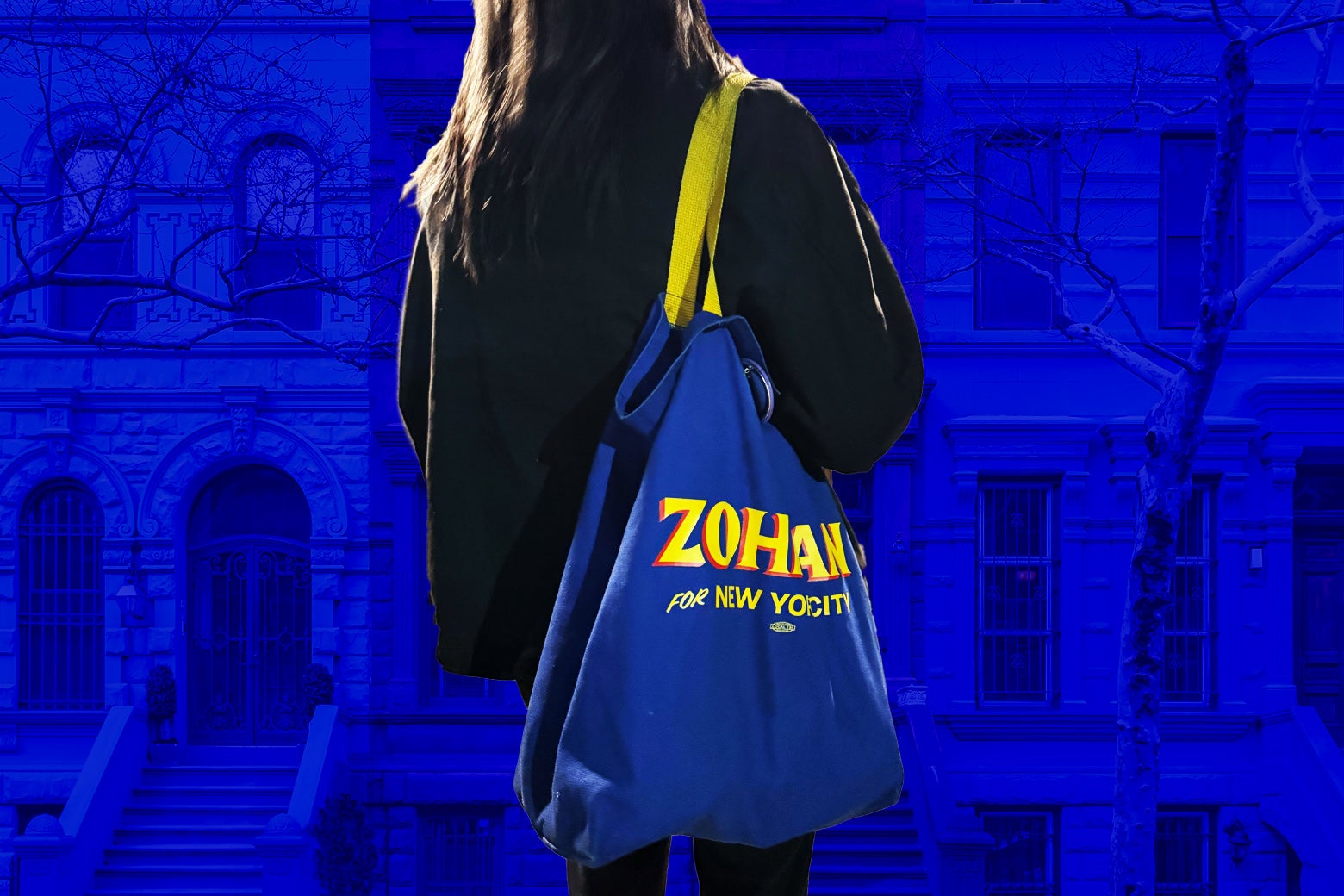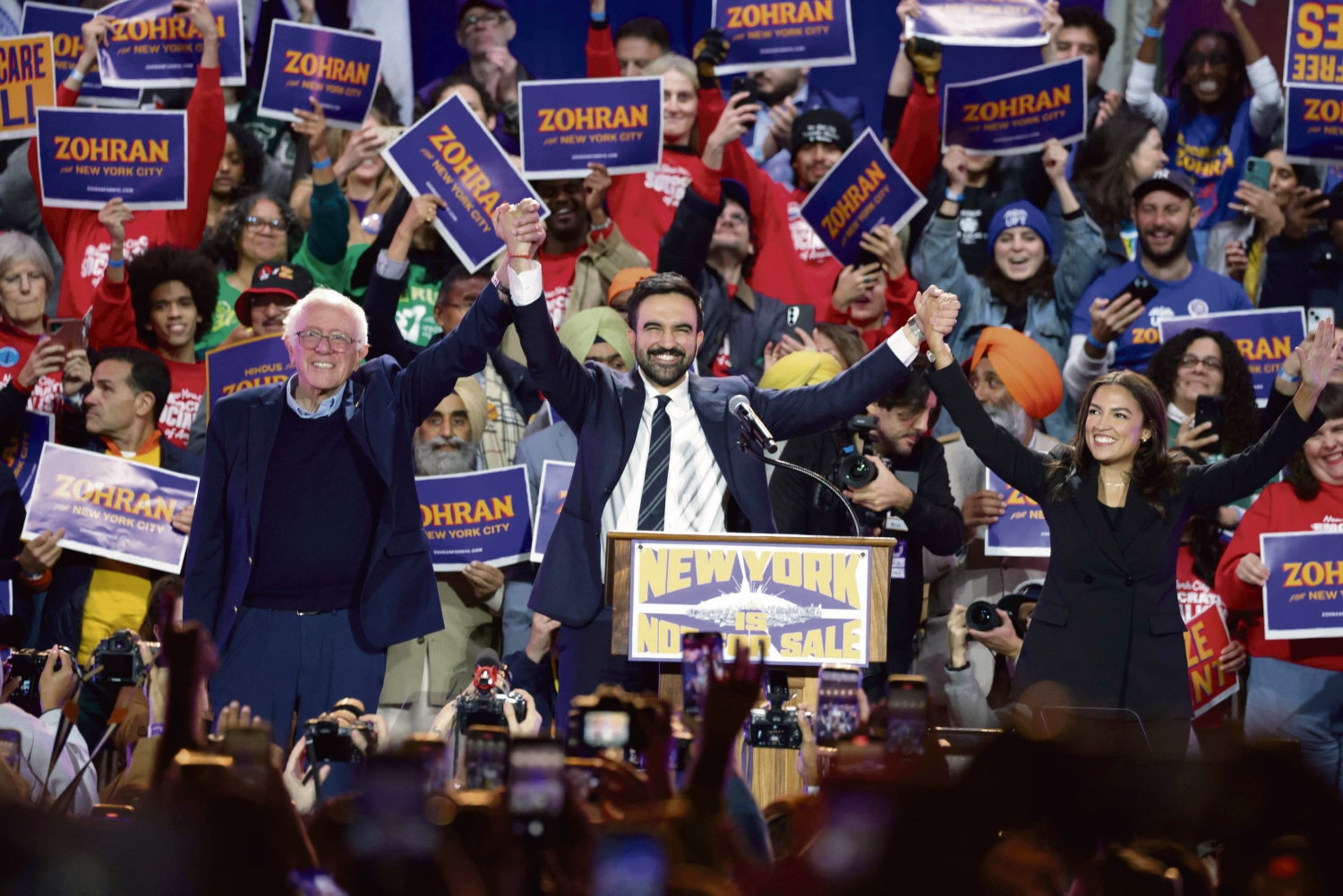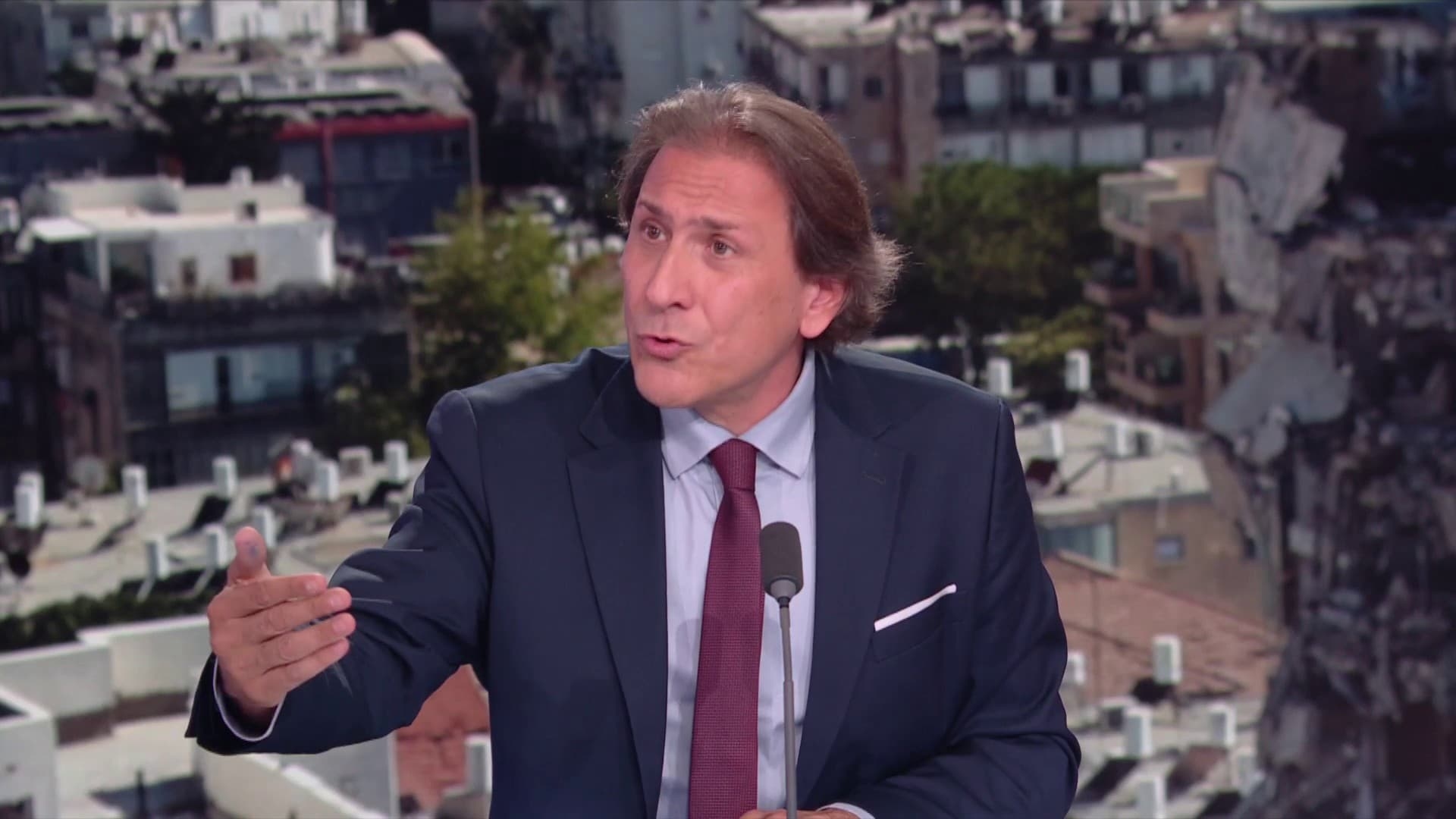I Went Door-to-Door With Zohran Canvassers. What People Said Surprised Me.

 (min-width: 1024px)709px,
(min-width: 768px)620px,
calc(100vw - 30px)" width="1560">
(min-width: 1024px)709px,
(min-width: 768px)620px,
calc(100vw - 30px)" width="1560">Sign up for the Slatest to get the most insightful analysis, criticism, and advice out there, delivered to your inbox daily.
It's a crisp fall evening in Woodside, Queens, a few weeks before the New York City mayoral election. The sun has just started to set and I'm standing with two canvassers on the front porch of a home with worn white paint and bright red steps, waiting for someone to come out and talk to us about Zohran Mamdani.
Woodside, a mostly working-class neighborhood with large Asian and Hispanic populations , swung 12 points toward Donald Trump in the 2024 election, earning him 39 percent of its overall vote. (For comparison, the city as a whole shifted 7 points toward Trump.) I wanted to tag along here with some canvassers for Mamdani—who Trump paints as an unhinged radical leftist, dubbing him “my little communist”—to see what people here made of him.
Tonight, I'm shadowing Elly Mui, who's been with the campaign since January—first as a paid canvasser in the run-up to the primary, which Mamdani won in a surprise upset, and as a volunteer ever since.
Mamdani's attempts to engage with Trump voters are one of the first things that impressed her about him. It spoke to her, she said, that he was asking people why they voted for Trump and seemed to be earnestly trying to understand their reasons and respond with solutions.
Tonight, Mui came equipped with bright blue flyers in six languages: English, Spanish, Bangla, Chinese, Arabic, and Urdu. She's paired up with a first-time canvasser, Michael, a twentysomething from Queens who declined to give his last name.
This home seems promising for them—there's a “Free Gaza” sticker on the door, and Mamdani has been outspoken in his criticism of Israel's actions in Gaza. Mui knocks on all four corners of the door (in case they hear one more than others, she explains) and, after several minutes, a young woman wearing a pink hijab opens it.
As soon as Mui launches into her pitch, a grin spreads over the woman's face. “I’m voting for him!” she says with enthusiasm. She adds that Mamdani's promise to make the city buses free is especially attractive to her as a college student who relies on them regularly. She also mentions that she respects how Mamdani is speaking to communities of color that she feels are often ignored.
Mui urges the girl to volunteer for the campaign, and then we're moving on to the house next door, which turns out to be an easy conversation, too. Here, a middle-aged woman wearing a purple hijab covered in white flowers answers the door. As Mui starts up with her pitch, the woman says she voted for Mamdani in the June primary, and will (inshallah, she adds) vote for him again in the upcoming general election.
As we head toward the next house, the canvassers have an app from the campaign that they're checking. It identifies homes that will likely vote Democratic in the mayoral race, so they can focus on people who'll be most receptive to their pitch for Mamdani. But as we're walking, a woman in a black sweater and messy bun comes out of a house up ahead, trash can in tow. Mui slips through her open gate, steps onto a small driveway, and approaches her.
“Hi, I'm Elly! I'm with the Zohran campaign,” Mui says. “Are you planning on voting in the November election?”
The woman says she's not quite sure about Mamdani, but that she knows a lot of younger people have been talking about him. She seems to be a bit older—maybe in her 50s—and she says she's voting for independent candidate Andrew Cuomo because of her experience, and because she feels he handled the pandemic well.
But she seems open to hearing more as she stands there, one hand still resting on her trash can. She adds that she was impressed with the interview Mamdani did on Fox News, and when Mui raised the point that Mamdani would be the first Muslim mayor of New York, the woman agreed that would be nice.
They chat for several minutes. At one point, a cat darts across the yard, and the woman jumps. “Everyone keeps feeding these cats!” she laments.
Mui changes the subject to Trump, and the woman gestures with her arms as she lets out her frustration about the president's immigration raids. “New York will be getting like Chicago soon,” she says. “It’s scarier for me because I’m brown.”
Mui tries to latch onto her frustration, underlining how Mamdani will be firm in pushing back on Trump. The woman mulls it over. “I may consider him,” she says—but adds that she'll still probably vote for Cuomo.
We move along down the dark street—the sun has set now, and it's harder to make out the house numbers. No one answers at the next few houses, and Mui wedges campaign flyers in the doorframes.
We come to a row house with a garden filled with leafy plants growing up trellises and flowerpots on each of the steps. Mui knocks on the door, and a man peeks through the curtains from a window on the ground floor. He disappears from the window, and a moment later, the door opens a crack.
As Mui starts introducing herself, the man interrupts: “I don't vote,” he says bluntly.
Undeterred, Mui asks why, trying to start a conversation. The man, dressed in a faded T-shirt and baggy shorts, at first seems apprehensive.
“In 32 years, I haven't voted,” the man says—he's eligible, he adds, but he's never registered, even though his brother, who he shares the home with, is a Democrat. He says he's disillusioned with politics, and doesn't trust anything politicians say.
The man shares that he recently lost his job after working for 15 years at the same company and he hasn't had much luck finding something new. Now, he's fully emerged from behind the door, his posture more relaxed as he leans against the frame. He sounds frustrated and a little melancholy, talking about losing something he'd worked at for so long.
Mui nods sympathetically and shares that she can relate. She was laid off last year herself, and understands how difficult it is to navigate. It's part of what drew her to Mamdani's campaign, she says: He's promising to implement policies that will make New York more affordable. She adds that he's going to stand up to Trump too, during a time when the president's policies have led to rising inflation and a weakening job market .
“I’m all for socialism!” the man exclaims, with a big smile on his face, a bit out of the blue, as if his inner monologue is suddenly popping out.
The canvassers burst out laughing, and Mui stresses that it's a particularly critical time for the man to cast his first vote, with a Democratic socialist on the ballot. “Maybe I'll make time to register,” the man muses aloud. Before we walk away, Mui hands him a flyer and gently presses him to register one more time.
Watching Mui's interactions with voters tonight is making me appreciate how messy, fluid, and emotional American politics is. It's not as straightforward as pollsters and strategists might want it to be—people's experiences and opinions don't fit into neat boxes, even though our binary political system forces them to, especially on the federal level.
When I caught up with Mui on the phone later on the next day, she looked back on that moment and said it made sense to her that voters are frustrated and disengaged with the political system. That kind of dissatisfaction is what might draw voters to both Trump and Mamdani, she said.
“The people who are in that middle ground between Trump and Zohran are disenfranchised by the political system,” she said. “I think politics can be confusing for a lot of people, and just saying, Hey, this is a person that cares about us resonates more.”
As the evening in Woodside winds to a close, there's a deepening chill in the air, and Mui knocks on a few more doors. She doesn't get an answer, even though it's clear that people are home. A teenage girl peeks out from a window, and Mui waves to her from the street, but the girl doesn't react.
Finally, we approach the last house of the night, and Mui knocks, slowly and loudly, on the door. Several minutes passed, and finally we heard some footsteps. A tall, middle-aged man appears in the doorway, and as soon as Mui says she's with the Mamdani campaign, the man immediately says: “No, I will not vote for him.”
Mui offers him a leaflet in case he wants more information, and the man refuses to take it. He says that he immigrated from India, and that he doesn't like Mamdani because he's using his identity for political gain. He accuses him of playing the “Muslim card,” and claims Mamdani holds anti-Indian views.
“No Hindu will vote for him,” the man adds with confidence.
The man seems to be thinking of a stance Mamdani took against Indian President Narendra Modi during a mayoral forum earlier this year, calling him a “war criminal” for the deadly anti-Muslim riots in 2001 that Modi was accused of supporting during his time as a state elected official.
Mui patiently hears the man out for a while, giving him space to air his opinions. Then she pushes back, noting that Mamdani's parents are both originally from India, and that he supports Indian immigrants and wants to represent all New Yorkers regardless of ethnicity. When Mui mentions that Mamdani's mother is a filmmaker who made the movie Mississippi Masala , he seems surprised and adds he didn't know that.
Still, he repeats that he dislikes identity politics. He mentions that he's voted for Trump three times.
Mui asks what drew him to Trump, and the man says he doesn't like the idea that his tax dollars are going to support immigrants crossing the southern border, while immigrants who entered legally, like himself, are forced to struggle through the system on their own. But as he keeps talking, some frustration with Trump comes out: In his second term, the man says, he's been acting like a bully.
Mui sixteens the opportunity to argue that Mamdani will do more to oppose Trump than Cuomo, whose campaign has the support of Trump-aligned donors . Trump himself, she adds, has suggested he'd prefer a Mayor Cuomo to a Mayor Mamdani. And she shares that, like him, her parents are immigrants—they came over from China and struggled for years—and that part of what she likes about Mamdani is that he wants to make the city more affordable for everyone.
Soon they'd been talking for nearly half an hour, standing out in the chill on the man's stoop. “You're so positive about him,” the man says finally, clearly impressed.
Before Mui can walk away, the man asks if he can see that flyer again, after all.
 Sign up for Slate's evening newsletter.
Sign up for Slate's evening newsletter.




